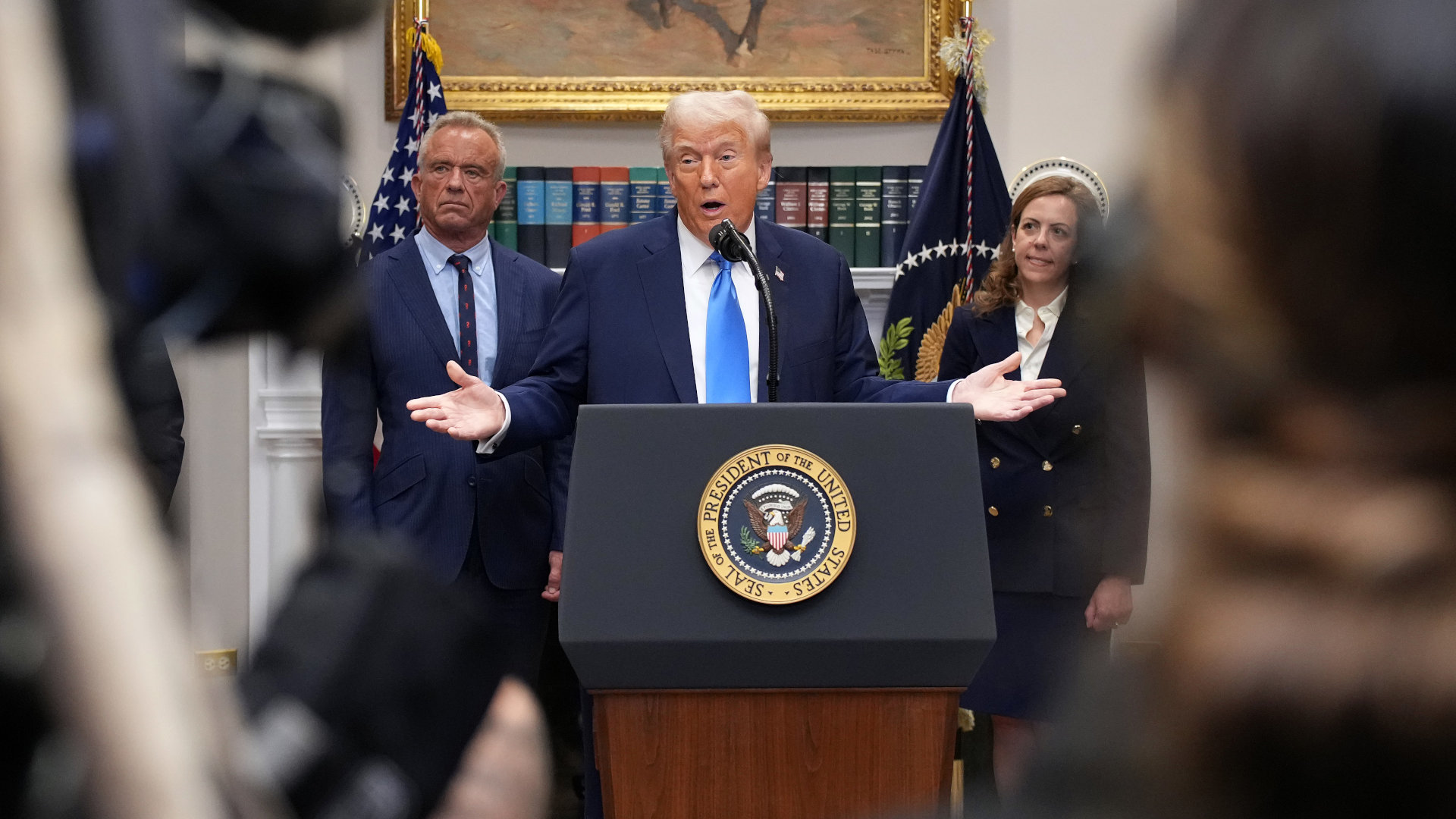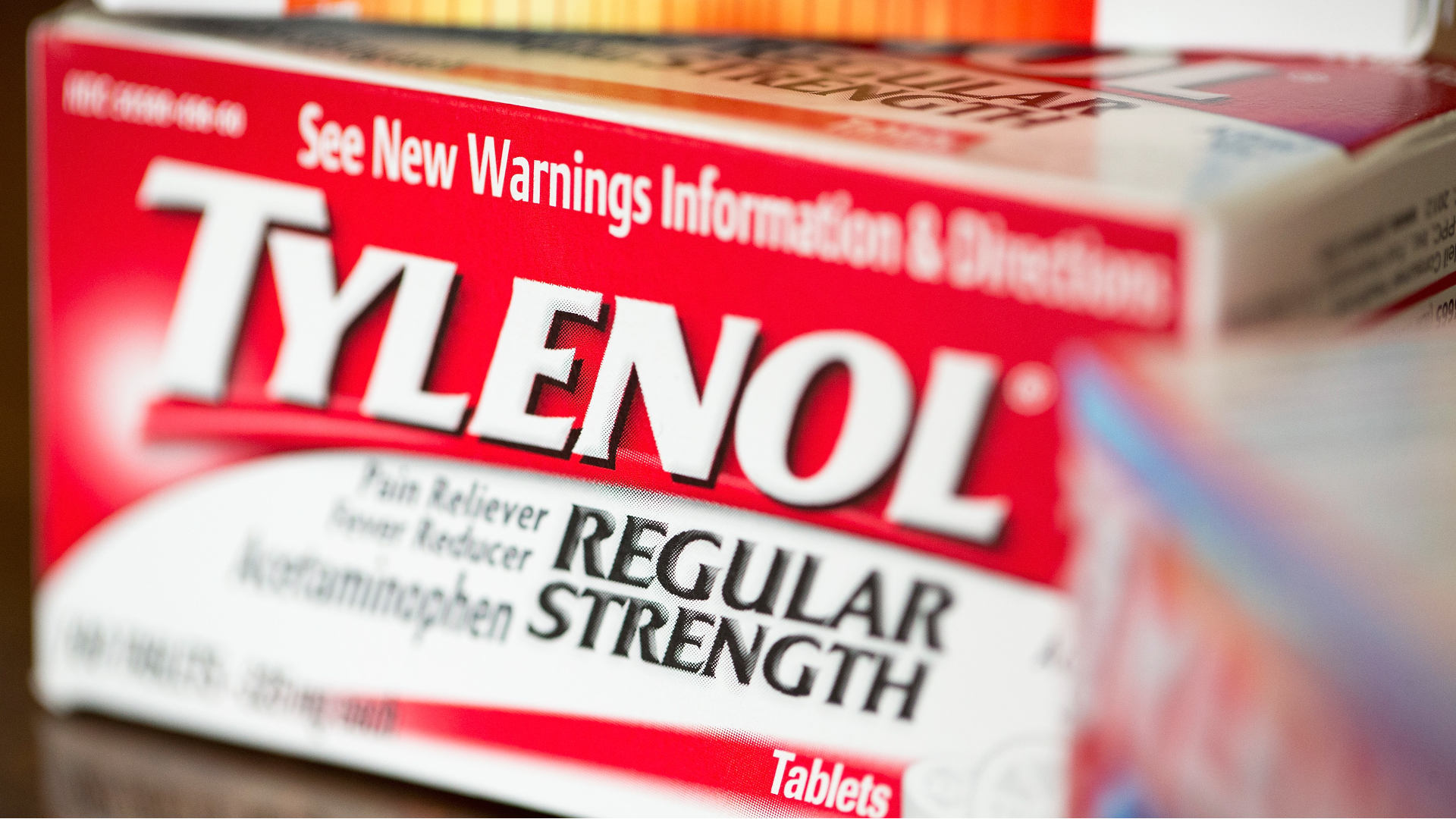Trump Links Tylenol Use in Pregnancy to Rising Autism Rates
President Trump announced on Monday that the Food and Drug Administration will notify physicians that the use of Tylenol during pregnancy is contributing to rising autism rates, and that pregnant women should only take it if “medically necessary.”
“Taking Tylenol is not good,” Trump said. “Don’t take it.”
This story first appeared in NOTUS, a nonpartisan publication from the Allbritton Journalism Institute covering politics and policy in Washington.
The new directive runs counter to current medical advice, which says that Tylenol’s active ingredient, acetaminophen, is a safe pain reliever for pregnant women. Research has found mixed results on whether taking very high amounts of Tylenol during pregnancy can cause neurological disturbances.
Trump appeared alongside Health Secretary Robert F. Kennedy Jr., who pledged earlier this year to determine the causes of rising childhood autism rates in a matter of months, a timeline that public health experts said was unrealistic. The rate of autism diagnoses in children has risen sharply in recent decades, a trend most researchers attribute to increased awareness and improved diagnostic guidelines, as well as environmental factors like increased pollution.
Other administration officials present at Monday’s press conference included Jay Bhattacharya, the director of the National Institutes of Health, and FDA Director Marty Makary.
Robert F. Kennedy Jr. pledged earlier this year to determine the causes of rising childhood autism rates in a matter of months, a timeline that public health experts said was unrealistic.
The manufacturer of Tylenol, Kenvue, in a statement Monday disputed the administration’s announcement, saying that “independent, sound science clearly shows that taking acetaminophen does not cause autism.”
“We strongly disagree with any suggestion otherwise and are deeply concerned with the health risk this poses for expecting mothers,” the statement continued. The original manufacturer of Tylenol, Johnson & Johnson, spun off the popular brand in 2023.
The president of the American College of Obstetricians and Gynecologists, Steven Fleischman, also said in a statement that the president’s suggestions were “highly concerning” and would send a “harmful and confusing” message to pregnant patients.
“Today’s announcement by HHS is not backed by the full body of scientific evidence and dangerously simplifies the many and complex causes of neurologic challenges in children,” Fleishman’s statement said. “In more than two decades of research on the use of acetaminophen in pregnancy, not a single reputable study has successfully concluded that the use of acetaminophen in any trimester of pregnancy causes neurodevelopmental disorders in children.”
During Monday’s press conference, Trump announced that the NIH would be issuing 13 awards under the Autism Data Science Initiative — and also appeared to back the unproven theory also promoted by Kennedy that vaccines cause autism.
“There’s something artificial. They’re taking something,” Trump said. “There are certain groups of people that don’t take vaccines and don’t take any pills that have no autism.”
Trump railed against a number of other vaccines currently administered to children, including the Hepatitis B vaccine and the measles, mumps, rubella and varicella combined vaccine, but didn’t go so far as to say parents should not vaccinate their children. Instead, he said parents should spread out their children’s vaccinations over the course of their childhood.
“It’s too much liquid,” Trump said. “Too many different things are going into that baby.”
Kennedy also announced that the administration has also identified the medication leucovorin, also called folinic acid, as an “exciting therapy” for children with autism. While some small studies have found that administering leucovorin can improve autism symptoms in children, Alycia Halladay, the chief science officer of the Autism Science Foundation, told USA Today that the foundation “does not consider this a treatment for autism.”
Kennedy said the NIH has previously focused on researching possible genetic causes of autism, an approach he branded “politically safe and entirely fruitless.” Most scientists believe autism is caused at least in part by genetic factors.
Margaret Manto is a NOTUS reporter and an Allbritton Journalism Institute fellow.











